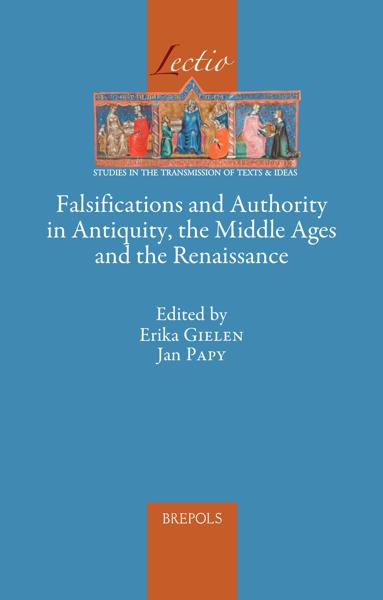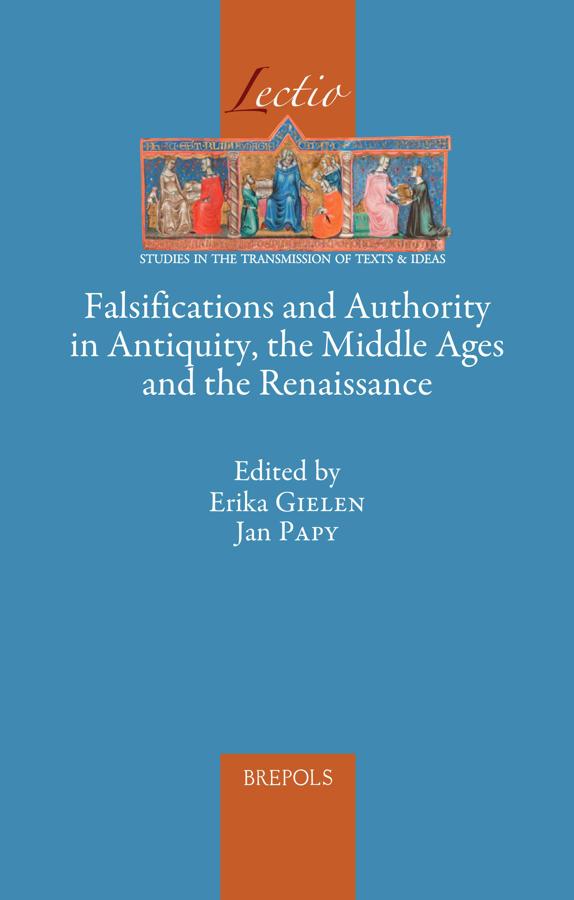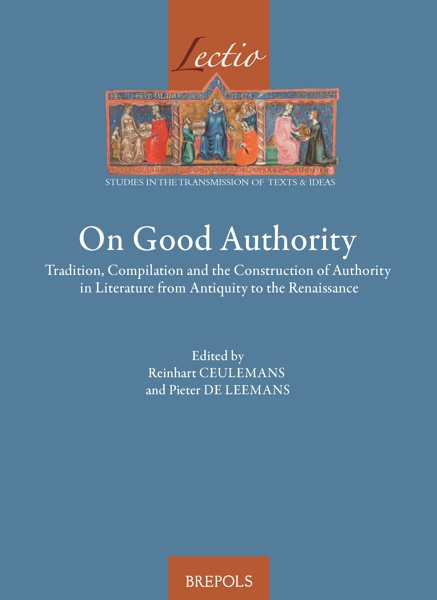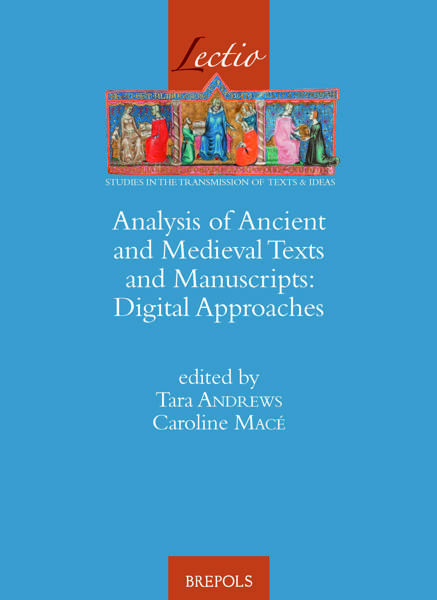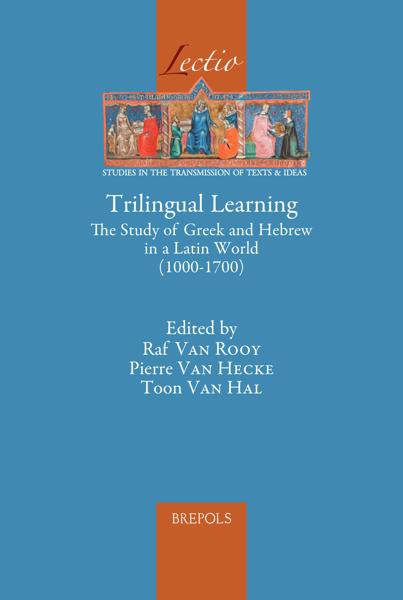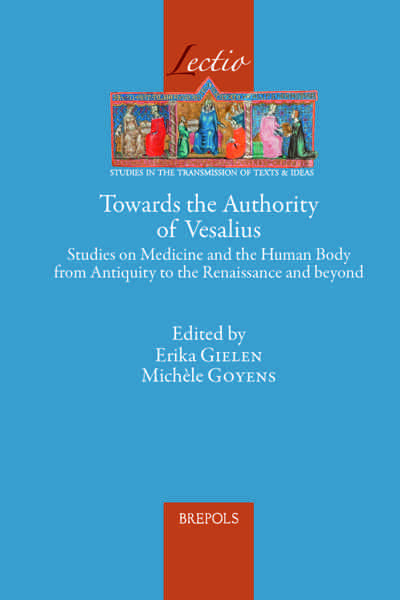
Falsifications and Authority in Antiquity, the Middle Ages and the Renaissance
Erika Gielen, Jan Papy (eds)
- Pages: 348 p.
- Size:156 x 234 mm
- Illustrations:3 b/w, 9 tables b/w.
- Language(s):English, Latin, Greek
- Publication Year:2020
- € 100,00 EXCL. VAT RETAIL PRICE
- ISBN: 978-2-503-58843-8
- Hardback
- Available
- € 100,00 EXCL. VAT RETAIL PRICE
- ISBN: 978-2-503-58844-5
- E-book
- Available
In order to gain a deeper understanding of the shifting idea of authority of a text, its transmission and reception in a variety of genres, settings and contexts, this collective volume envisages to enlarge and deepen this understanding in tangling literary forgery and emulation.
Erika Gielen obtained a doctoral degree in Classics from KU Leuven, with a doctoral thesis on the Byzantine philosophers Joseph Racendytes ("De virtute") and Nicephorus Blemmydes ("De virtute et ascesi"). Presently she is Managing Director of the interdisciplinary Research Centre LECTIO (KU Leuven).
Jan Papy is Full Professor in Latin and Neo-Latin Literature at the Faculty of Arts of KU Leuven. His research focuses on Renaissance Humanism and Neo-Latin literature, with special attention for Renaissance philosophy, cultural history of the Low Countries, history of universities and history of science.
Confronted with the shifting idea of the authority of a text and its transmission and reception in a variety of genres, settings and contexts, this collective volume envisages to enlarge and deepen our understanding of these notions by tangling literary forgery and emulation. Authority and authoritative literary productions provoke all kinds of interest and emulation. Hermeneutical techniques, detailed exegesis and historical critique are invoked to put authority, and indeed also possible falsifications, to the test. Scholars from various disciplines working on texts, either authoritative or forged, and stemming from different periods of time, reflect on these topics on a methodological basis and from a hermeneutical entrance. In doing so, a threefold axis for questioning the phenomenon is proposed, namely the motif of falsification, the mechanism or technique applied, and the direct or indirect effect of this fraud.
Introduction. The Protean Appearance of Falsifications: Emulating and Challenging Authority in Antiquity, the Middle Ages and the Renaissance (Jan Papy & Erika Gielen)
The Documents in the Attic Orators: Early Antiquarians and Unintentional Forgers (Mirko Canevaro)
Four Forged Orations by Aeschines, Demades and Demosthenes and their Reception during the Renaissance (Luigi Silvano)
The Fate of the Pridie: Tracing the Decline of Manuscript Authority (Katherine A. East)
Causes, Opportunities and Methods in the Falsification of Roman Epigraphy in Renaissance Spain. The Case of the Tetrachs’ Inscriptions (Joan Carbonell Manils & Gerard González Germain)
Is On Theriac to Piso a Forgery? (Robert Leigh)
The Creation of Authority in Pseudo-Pythagorean Texts and Their Reception in Late Ancient Philosophy (Angela Ulacco)
Pseudo-Plutarch’s On Rivers and the School Tradition (Félix Racine)
Rufinus versus Jerome in the Falsification Affair (Christian Müller)
The Forgery of Isaac Casaubon’s Name: Authority and The Originall of Idolatries (Jacqueline Hylkema)
Index manuscriptorum
Index nominum
